Some panoramas of China#
By
members of the AirPano Team that is a member of the global-geography Consortium.
with kind permission of AirPano
China, with the total area of over 9,500,000 square kilometers, is the third largest country on the earth. The Chinese civilization is one of the oldest in the world: its age is estimated to be over 3,500 years. It would seem odd if such a big and ancient country had no world's outstanding sights and monuments.
In a new virtual tour AirPano is going to share with you the bird's eye view of different natural, historical and cultural landmarks of China. The most famous and significant one is the Great Wall of China. According to the archaeological research, once the total length of the wall was 21,196 kilometers, considering that its construction began in the 3rd century BC. But only its later sections, that were built in the 14th-17th centuries with the use of more sustainable and solid stone blocks, have remained till nowadays. And even the remaining 6,259 kilometers of this construction truly make the Great Wall of China one of the most outstanding monuments of the world.
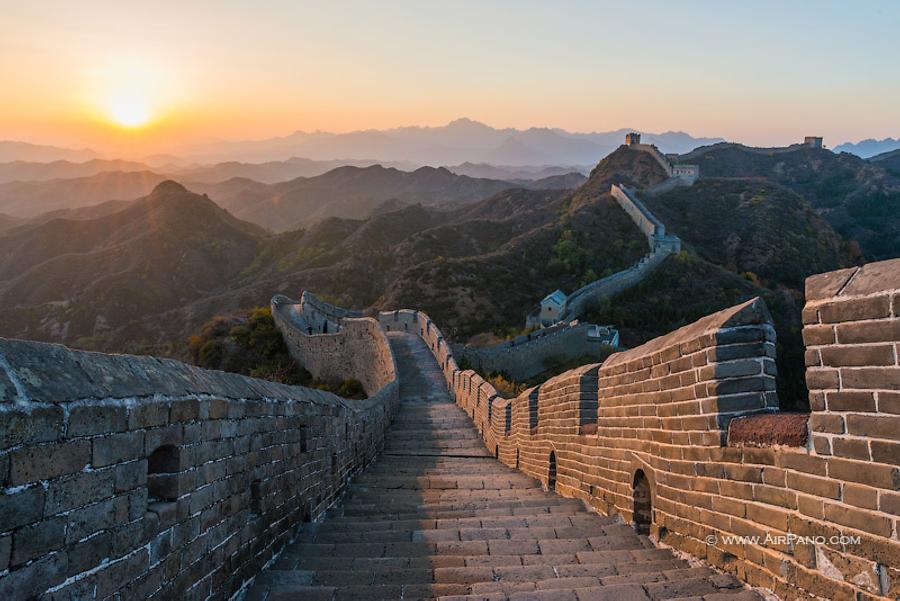
© AirPano
Among numerous natural landmarks of China, AirPano has chosen several natural reserves to be included in this virtual tour. Jiuzhaigou National Park is known for its multi-level waterfalls and colorful lakes; Huanglong is a scenic and historic interest area with travertine terraces of a goldish color; Guilin is a place where human-made masterpieces harmonize with creations of nature.
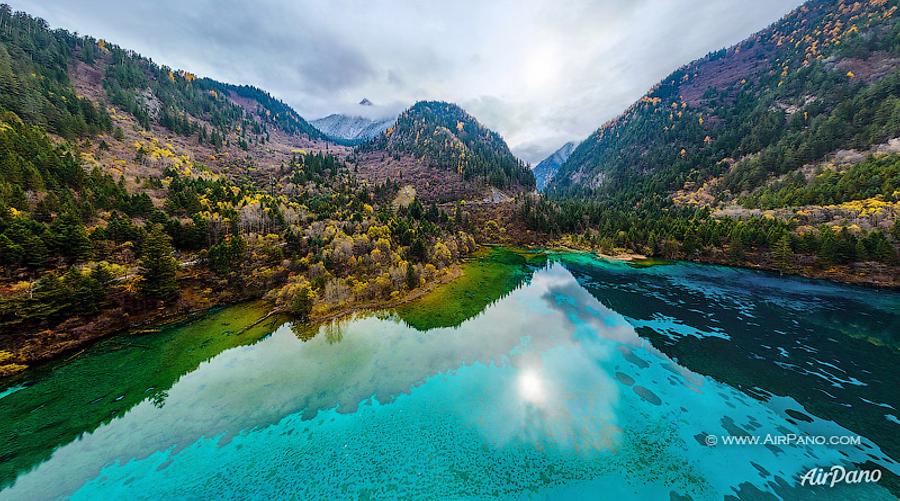
© AirPano
Qiandao, also known as Thousand Island Lake, is a human-made lake created as a result of the completion of a hydroelectric station. It covers an area of 573 square kilometers, and the number of islands truly exceeds one thousand. Having the view from above, try to count them all!
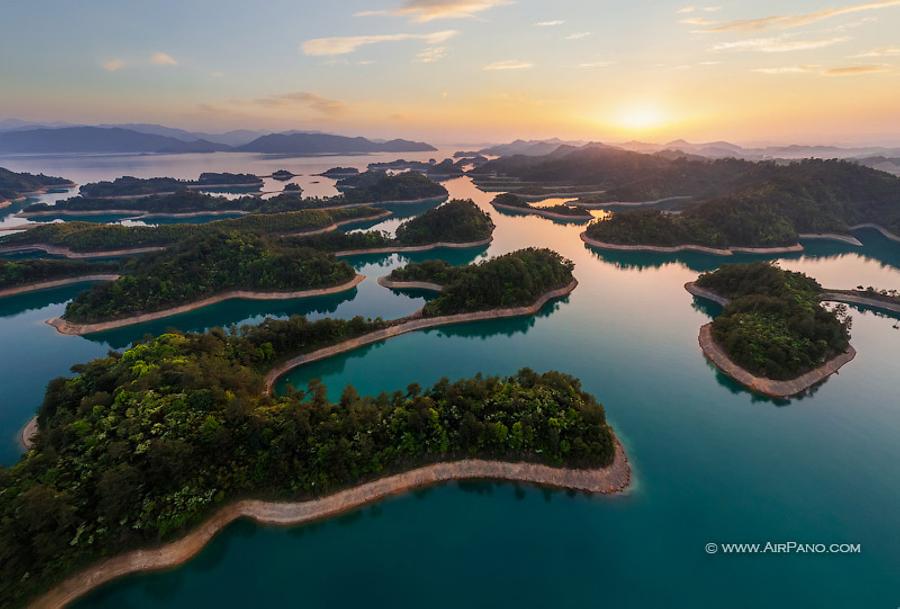
© AirPano
One more landmark that appeared due to the activity of the human is the rice terraced hillsides of Yunnan Province. Multi-level terraces created for cultivating rice look incredible. Depending on what season it is, vegetation and water paint them into curious shades of colors.
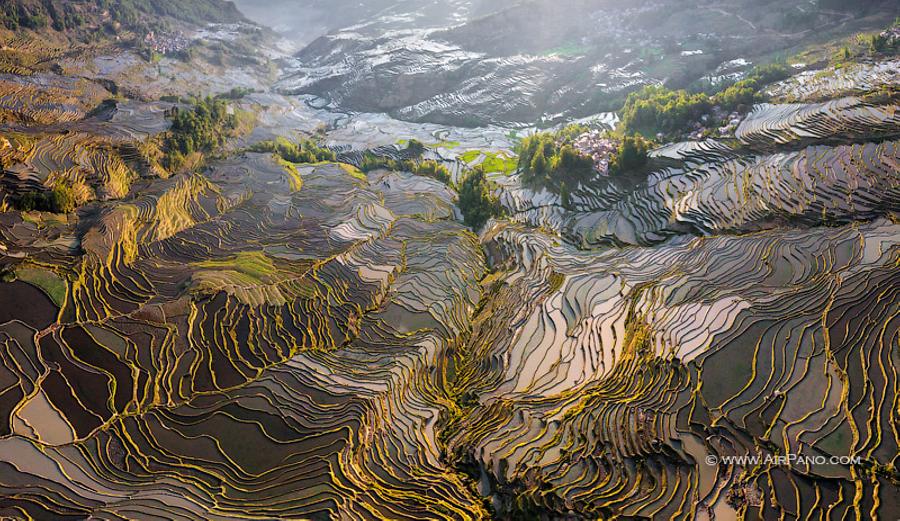
© AirPano
Zhangjiajie National Forest Park has become worldly known thanks to the James Cameron's Avatar movie: it is believed that the landscapes of this park inspired the creation of the film's imaginary worlds. The resemblance is so evident, that the park was nicknamed "Avatar", and one of the peaks was officially renamed "Avatar Hallelujah Mountain".
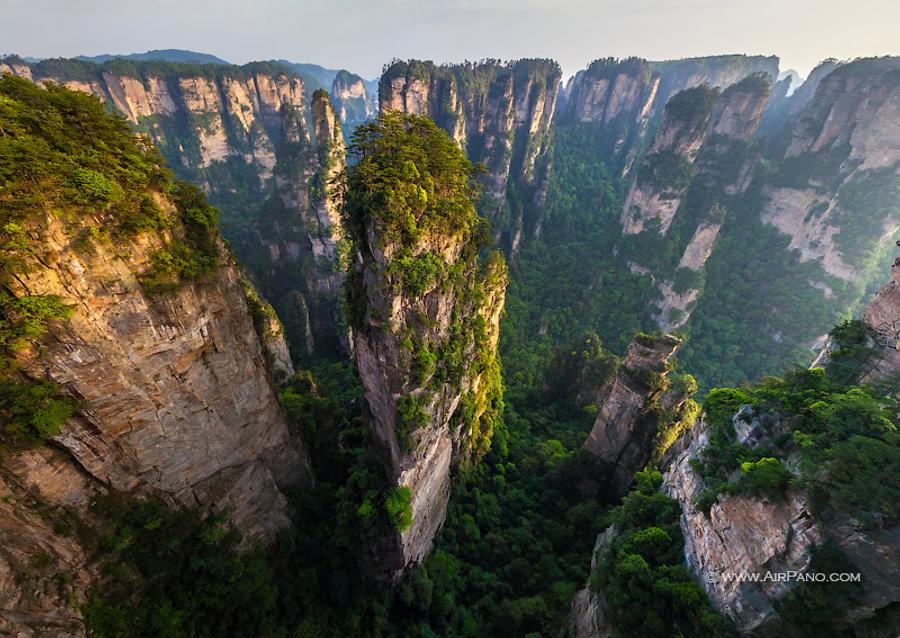
© AirPano
Huangshan mountain range was named a UNESCO World Heritage Site for being a place of exceptional natural beauty, and you will make sure that it is true as soon as you observe the panoramas of this place. For representation of the major humankind achievements, we have chosen two famous and exceptional cities of China — Shanghai and Hong-Kong. These are the places where the antiquity coexists with the modern world, traditions — with contemporary issues, the vegetation and ponds of parks are neighboring with concrete and glass of the skyscrapers.
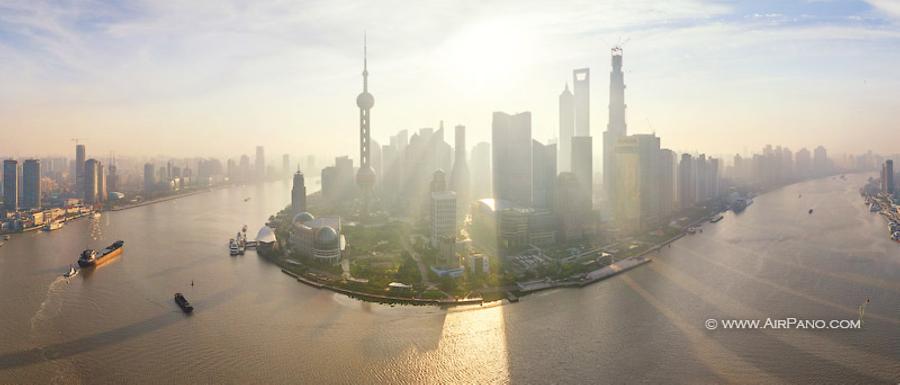
© AirPano
Get a closer acquaintance with China: a diverse, majestic and incredible country!